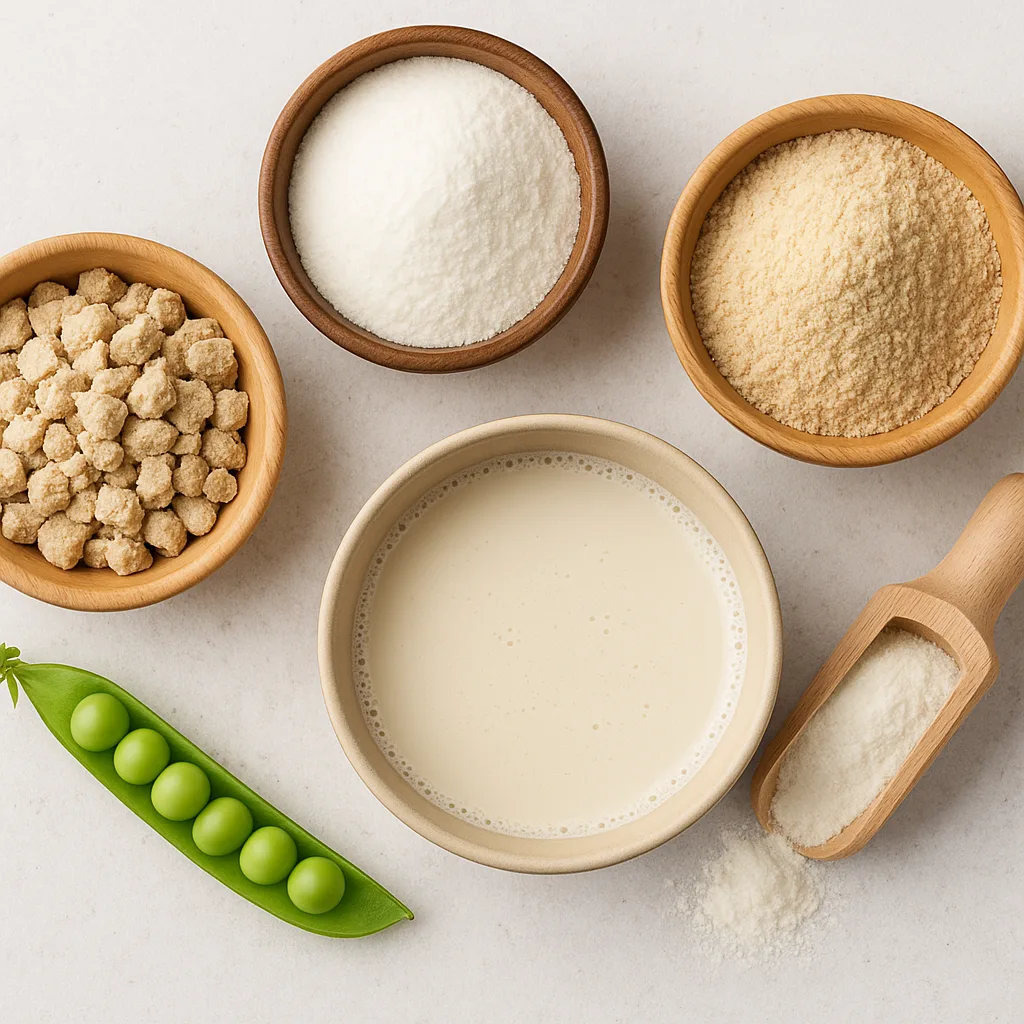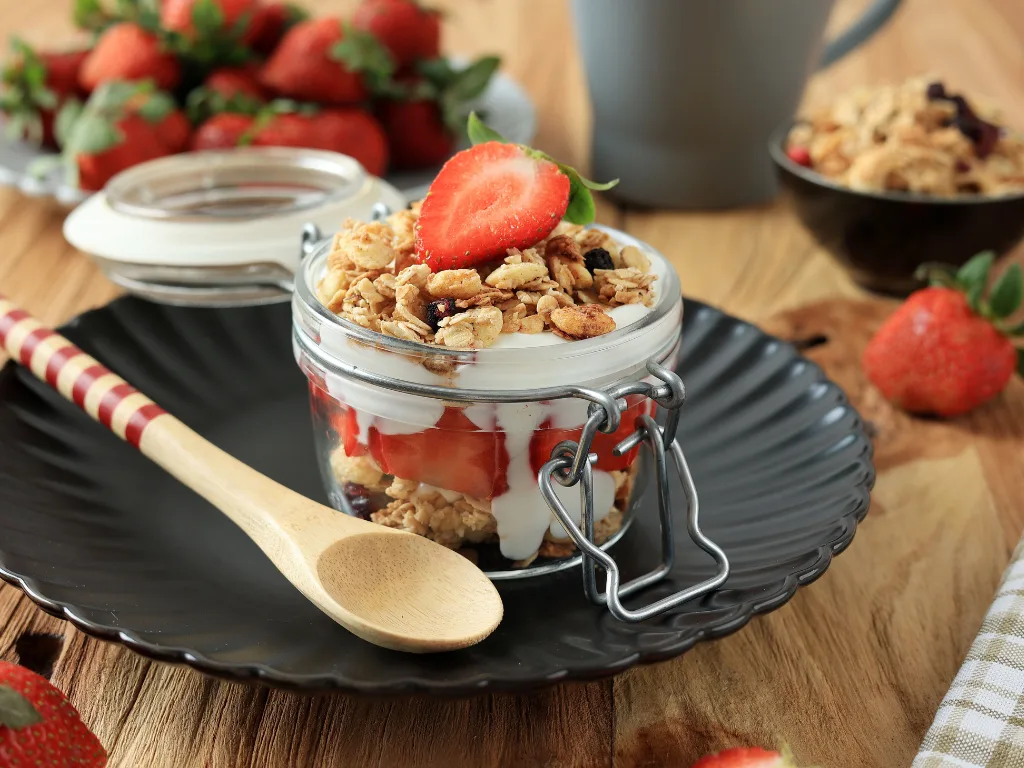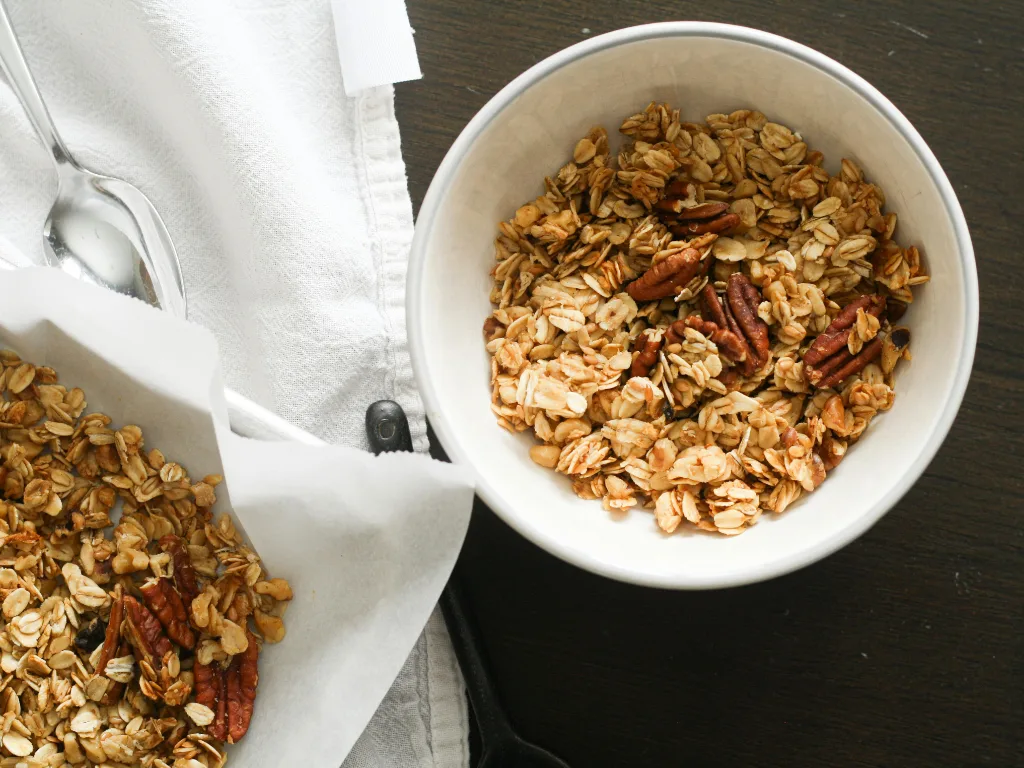Inulin Alternative: Better Functional Fibers for Modern Food & Beverage Manufacturing
November 22, 2025

Inulin has been widely used for years as a go-to dietary fiber in food and beverage formulation. It offers mild sweetness, fat-mimicking properties, and digestive benefits — making it a favorite in dairy alternatives, functional beverages, nutrition bars, and bakery items. But as the industry shifts toward cleaner labels, lower sugar, and more stable manufacturing processes, formulators are increasingly searching for a reliable inulin alternative that solves inulin’s biggest limitations.
Across the Asia-Pacific region and beyond, manufacturers are demanding ingredients that deliver fiber claims without compromising taste, texture, stability, or production efficiency. This has accelerated interest in next-generation fibers such as resistant dextrin, soluble corn fiber, and pea fiber — functional ingredients that closely match or outperform inulin in terms of solubility, heat tolerance, and formulation versatility.
For B2B partners looking for clean-label ingredients with proven performance, this guide explores the best inulin alternatives available today and how Satoria Nutrisentials’ solutions can support more stable, scalable, and consumer-preferred product development.
Why Manufacturers Are Looking for an Inulin Alternative
Inulin remains popular, but it has several drawbacks that can affect commercial manufacturing. Many large food and beverage companies are now looking for ingredients that perform more consistently in high-temperature processes, offer better solubility, and provide higher formulation flexibility.
Here are the most common challenges formulators experience:
- Heat instability
Inulin tends to break down when exposed to high temperatures, particularly in extrusion, baking, and UHT processing. This can reduce fiber content and cause unexpected sweetness or off-flavors. - Poor solubility at higher inclusion levels
In beverages and powders, inulin may create cloudiness, viscosity spikes, or sedimentation, especially when targeting higher fiber claims. - Sensitivity to pH
Acidic beverages — like fruit juices, kombucha, and functional shots — often cause inulin to hydrolyze, leading to inconsistent performance. - Digestive tolerance concerns
Some consumers experience bloating or discomfort when consuming inulin at higher levels, which may reduce product repeat purchase.
These limitations have opened the door for more versatile inulin alternative ingredients that offer smoother integration into modern manufacturing systems without sacrificing nutrition or sensory qualities.
What Makes a Good Inulin Alternative?
Food and beverage brands are not just looking for any replacement — they need functional fibers that are stable, cost-efficient, and easy to formulate across various categories. A strong inulin alternative should ideally offer:
- High solubility without impacting taste or texture
- Heat and acid stability for UHT, baking, extrusion, and retort applications
- Clean-label positioning to meet consumer expectations
- Low glycemic response to support healthier products
- Neutral flavor profile to allow flexible use in sweet and savory products
- High digestive tolerance even at higher usage levels
- Synergy with other ingredients such as sweeteners, plant proteins, and prebiotic fibers
Satoria Nutrisentials’ portfolio includes multiple functional ingredients that meet or exceed these requirements, making them ideal inulin alternatives for both small-scale innovators and large commercial manufacturers.

Resistant Dextrin: A Heat-Stable, Highly Soluble Inulin Alternative
Among all inulin alternatives available today, resistant dextrin stands out as one of the most versatile. It offers excellent solubility, remains stable under high heat, and integrates smoothly into a wide variety of formulations.
Why resistant dextrin works well as an inulin alternative
Highly soluble and clear in beverages
Unlike inulin, resistant dextrin dissolves easily in both hot and cold liquids without causing cloudiness or sedimentation. This makes it ideal for:
- RTD beverages
- Functional powders
- Fiber-fortified waters
- Nutritional shots
- Sports drinks
Heat and acid stability
Resistant dextrin maintains structural integrity even in UHT processing, baking, and acidic environments. Fiber claims remain consistent throughout production.
Low glycemic impact
It supports lower-sugar and diabetic-friendly product formulation.
Neutral taste and texture
It does not add sweetness or viscosity, allowing formulators to control mouthfeel precisely.
High digestive tolerance
Consumers can tolerate higher serving levels without discomfort — an advantage over inulin.
Where resistant dextrin fits in product development
Resistant dextrin is particularly suitable for:
- High-fiber beverages
- Low-sugar bakery products
- Meal replacement shakes
- Nutrition bars
- Gummies
- Dairy alternatives
- Sauces and dressings
For manufacturers seeking a reliable, widely functional inulin alternative, resistant dextrin from Satoria Nutrisentials offers outstanding performance and consistent quality.

Soluble Corn Fiber: A Functional Fiber That Enhances Texture and Reduces Sugar
Another strong inulin alternative in Satoria Nutrisentials’ portfolio is soluble corn fiber (SCF) — a clean-label ingredient that works well in sugar reduction and fiber fortification.
Why soluble corn fiber is a strong inulin alternative
- Excellent versatility in sugar-reduced products
SCF provides mild sweetness and helps replace the bulk lost when sugar is removed. It supports better texture in:
- Cookies
- Granola
- Cakes
- Bars
- Low-sugar beverages
- Good heat stability
SCF remains stable during baking, extrusion, and heating — giving it an advantage over traditional inulin. - Digestive tolerance
It is generally better tolerated than inulin, especially in products requiring high fiber claims. - Neutral flavor profile
It does not interfere with the taste of delicate applications like dairy alternatives or protein beverages.
Best applications for soluble corn fiber
- Sugar-reduced snacks
- High-fiber bakery goods
- Functional beverages
- Meal replacements
- Confectionery
- Prebiotic formulations
For formulators shifting away from inulin but still seeking similar functionality and clean labeling, soluble corn fiber is a dependable and adaptable option.
Pea Fiber: A Clean-Label Texturizing Fiber with Gut Health Benefits
While not a direct 1:1 functional match for inulin, pea fiber is gaining traction as an alternative for brands that want a more natural, minimally processed ingredient.
Why pea fiber is helpful as an inulin alternative
- Supports clean-label formulation
Pea fiber is plant-based, allergen-friendly, and easily recognized by consumers. - Improves texture and mouthfeel
Pea fiber enhances water-binding properties, increases volume, and stabilizes structure in:
- Bakery goods
- Snacks
- Meat alternatives
- Extruded products
- Adds mild prebiotic benefits
Although not as soluble as resistant dextrin, pea fiber still supports digestive health and increases overall fiber content. - Works well with pea protein
Manufacturers who use Satoria’s pea protein or pea protein isolate benefit from ingredient compatibility across applications such as plant-based beverages, nutrition bars, and functional snacks.
Pea fiber is an excellent inulin alternative for brands looking for natural texture enhancement and clean-label appeal.
Choosing the Right Inulin Alternative for Your Product Category
Each application requires a different approach. The best inulin alternative depends on your processing method, sensory goals, nutritional targets, and labeling preferences.
Here are practical recommendations for manufacturers:
For beverages
Best choice: Resistant dextrin
Clear solubility, neutral taste, stable in acid and heat.
For low-sugar bakery goods
Best choice: Soluble corn fiber
Functionally replaces sugar bulk, supports browning and texture.
For snacks and extruded products
Best choice: Resistant dextrin or pea fiber
Stable under high temperatures, improves structure and crunch.
For plant-based dairy and shakes
Best choice: Resistant dextrin
Dissolves smoothly without grit or viscosity issues.
For nutrition bars
Best choice: A combination of resistant dextrin + soluble corn fiber
Enhances chewiness, prevents hardening, improves shelf life.
Satoria Nutrisentials provides complete ingredient support to help formulators choose the right combination based on:
- Desired fiber claim
- Processing environment
- Sensory profile
- Stability requirements
- Regulatory markets
- Clean-label targets
How Satoria Nutrisentials Supports Innovation with Inulin Alternatives
As a trusted supplier across the Asia-Pacific region, Satoria Nutrisentials develops ingredient solutions tailored for commercial manufacturers. Their focus on clean-label, functional, and high-performance ingredients allows formulators to scale with confidence.
Products relevant as inulin alternatives include:
Resistant Dextrin
- Clean taste
- High solubility
- Heat and acid stable
- Ideal for beverages, bakery, and snacks
Soluble Corn Fiber
- Supports sugar reduction
- Enhances texture and mouthfeel
- Better digestive tolerance
- Versatile across baking and confectionery
Pea Fiber
- Clean label
- Texturizing functionality
- Compatible with pea protein
- Suitable for snacks, bakery, and plant-based products
Pea Protein & Pea Protein Isolate
While not an inulin alternative, these ingredients complement fiber-rich formulations by improving nutrition, emulsification, and mouthfeel — helping brands create more balanced, high-value products.
Manufacturers looking for an alternative to inulin will find that Satoria’s product range supports both functional and nutritional innovation across multiple categories.
Moving Forward with Better Functional Fibers
The food and beverage industry is rapidly evolving toward healthier, lower-sugar, and fiber-fortified products — and inulin, while useful, is no longer always the most reliable choice for modern manufacturing. Resistant dextrin, soluble corn fiber, and pea fiber offer greater stability, better solubility, and cleaner labeling opportunities.
Whether you’re reformulating an existing product line or creating new functional beverages, snacks, or bakery goods, choosing the right inulin alternative can significantly improve consistency, quality, and consumer acceptance.
Partnering with Satoria Nutrisentials for High-Performance Fiber Solutions
If your team is searching for ingredients that outperform inulin in taste, stability, and processing efficiency, Satoria Nutrisentials is ready to support your next formulation breakthrough. Their high-quality functional fibers and plant-based ingredients are developed to help manufacturers scale faster and produce cleaner, healthier products.
Explore how resistant dextrin, soluble corn fiber, and pea fiber can elevate your formulations and strengthen your product pipeline.
Your Next Clean-Label Advantage Starts Here
Ready to upgrade your formulations with a powerful inulin alternative?
Connect with Satoria Nutrisentials to access high-performance fibers and technical support for your next innovation.
References
- Food and Agriculture Organization. (2023). Dietary fiber definitions and applications in food manufacturing.
- Gibson, G. R., & Roberfroid, M. B. (2022). Dietary prebiotics: Effects on gut microbiota and health. Journal of Nutrition, 152(3), 45–58.
- International Food Information Council. (2024). Functional fibers and consumer perception in global markets.
- Roberfroid, M. (2020). Inulin-type fructans: Functional food ingredients. Critical Reviews in Food Science and Nutrition, 60(14), 2269–2292.
- Xu, Y., & Huang, Q. (2022). Soluble corn fiber applications in reduced-sugar food systems. Food Science & Technology International, 28(4), 301–310.
- Zhang, L., Wu, P., & Li, H. (2021). Heat stability comparison of resistant dextrin and inulin in beverage processing. Journal of Food Engineering, 294, 110–125.